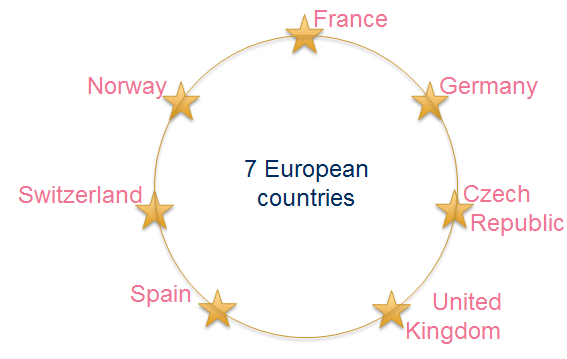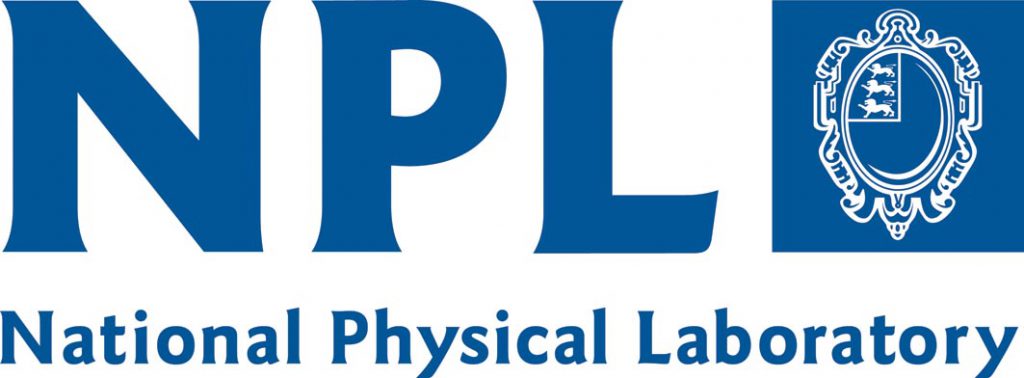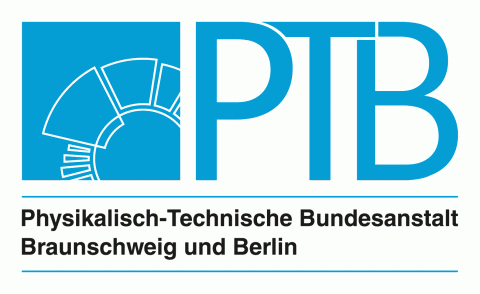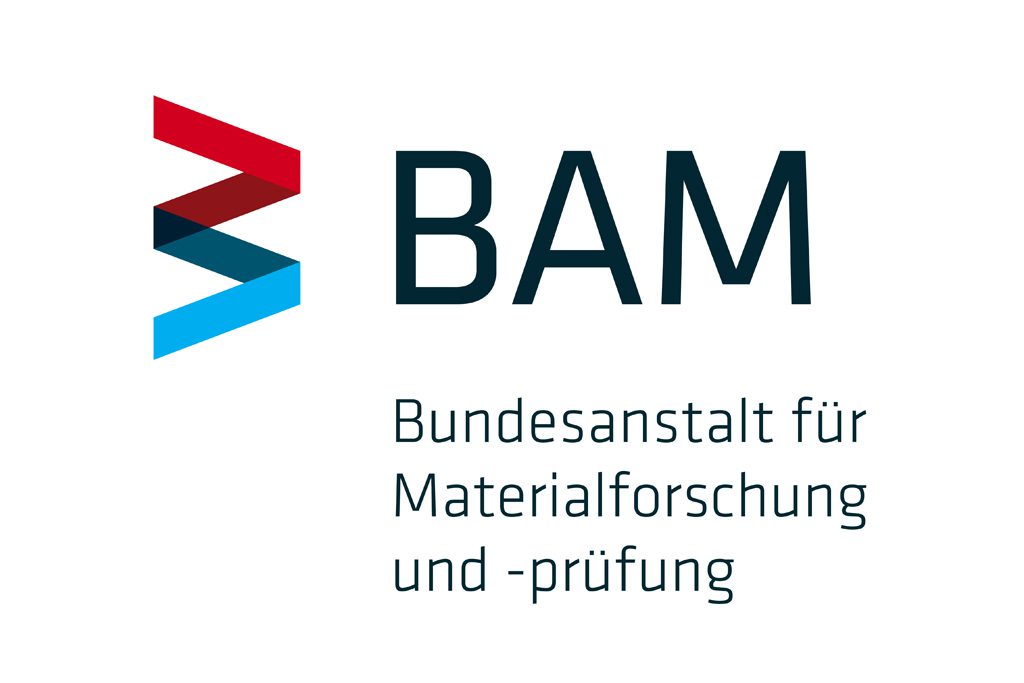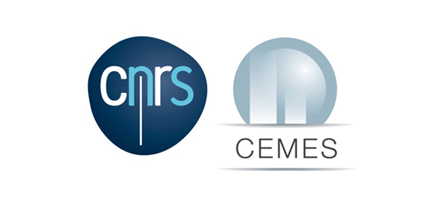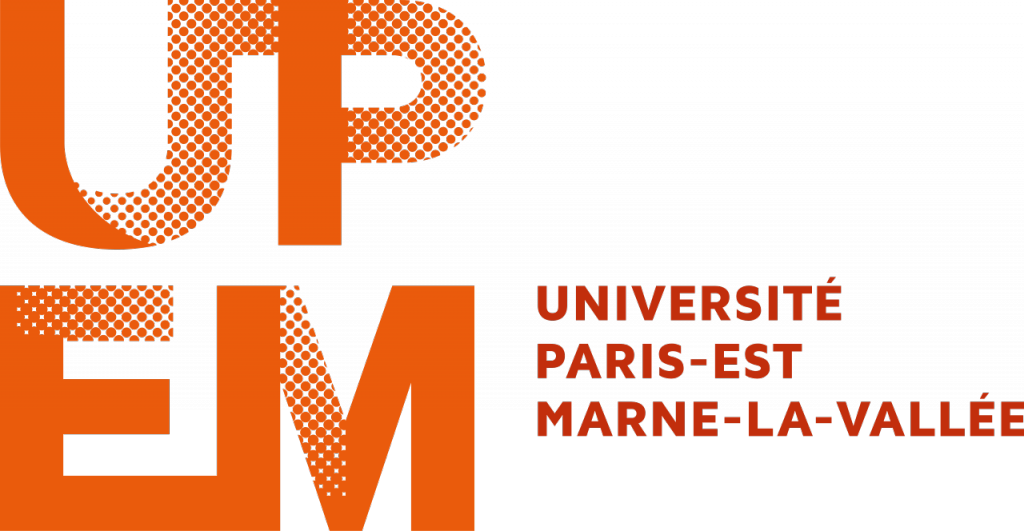
A LNE Joint Research Project


 The European Metrology Programme for Innovation and Research (EMPIR) has been developed as an integrated part of Horizon 2020, the EU Framework Programme for Research and Innovation. It is implemented by the European Association of National Metrology institutes EURAMET and is based on Article 185 of the Lisbon Treaty.
The European Metrology Programme for Innovation and Research (EMPIR) has been developed as an integrated part of Horizon 2020, the EU Framework Programme for Research and Innovation. It is implemented by the European Association of National Metrology institutes EURAMET and is based on Article 185 of the Lisbon Treaty.
Horizon 2020 aims to reinforce and extend the excellence of the EU’s science base and to consolidate the European Research Area in order to make the research and innovation system more competitive on a global scale.
The EMPIR programme has a duration of 10 years with 7 calls launched from 2014 to 2020. It is jointly funded by the EMPIR participating countries and the European Union.
It enables the collaboration of European metrology institutes (EURAMET members), industrial organisations/research centres and academia. EMPIR Joint Research Projects (JRPs) priorities are addressing the EU’s Grand Challenges in Health, Energy, Environment and Industry and are focusing on fundamental measurement science.
New calls integrated the EMPIR programme in 2015: Pre‐ and co‐normative research, Support for Impact, and Research potential.
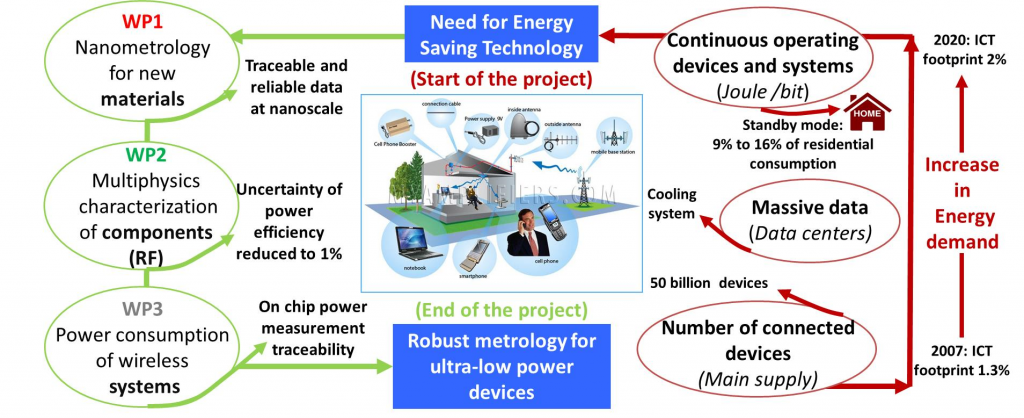
The ongoing IoT and the future 5G radio access network will have a fundamental impact on the daily life of all European citizens. Sensors (the cornerstone of IoT) will be found everywhere (car, house, industrial health monitoring, etc.) and 5G communication systems will provide greater connectivity (Machine-to-Machine, high data rates with low latency). The high data-rate aspect of 5G at mmWave frequencies makes the power consumption and thermal issues very challenging in wireless devices.
Improvement of the energy efficiency of devices and processes is therefore a key component for sustainable development of European products. Due to restrictions in current scaling strategies and dramatic thermal issues (particularly in wireless systems), semiconductor and electronics manufacturing roadmaps are aimed at the introduction of novel materials, more complete component characterisation and more efficient power management at the system level that will lead to the development of novel ultra-low power devices.
To support industry in facing these challenging issues, traceable measurement techniques are required that will establish a robust metrology framework for in-situ, in-operando and multiphysics characterisation of advanced materials and components, and for reliable and accurate data for an efficient power management
The project ran from September 2017 to August 2020. It involved 14 European organisations:
